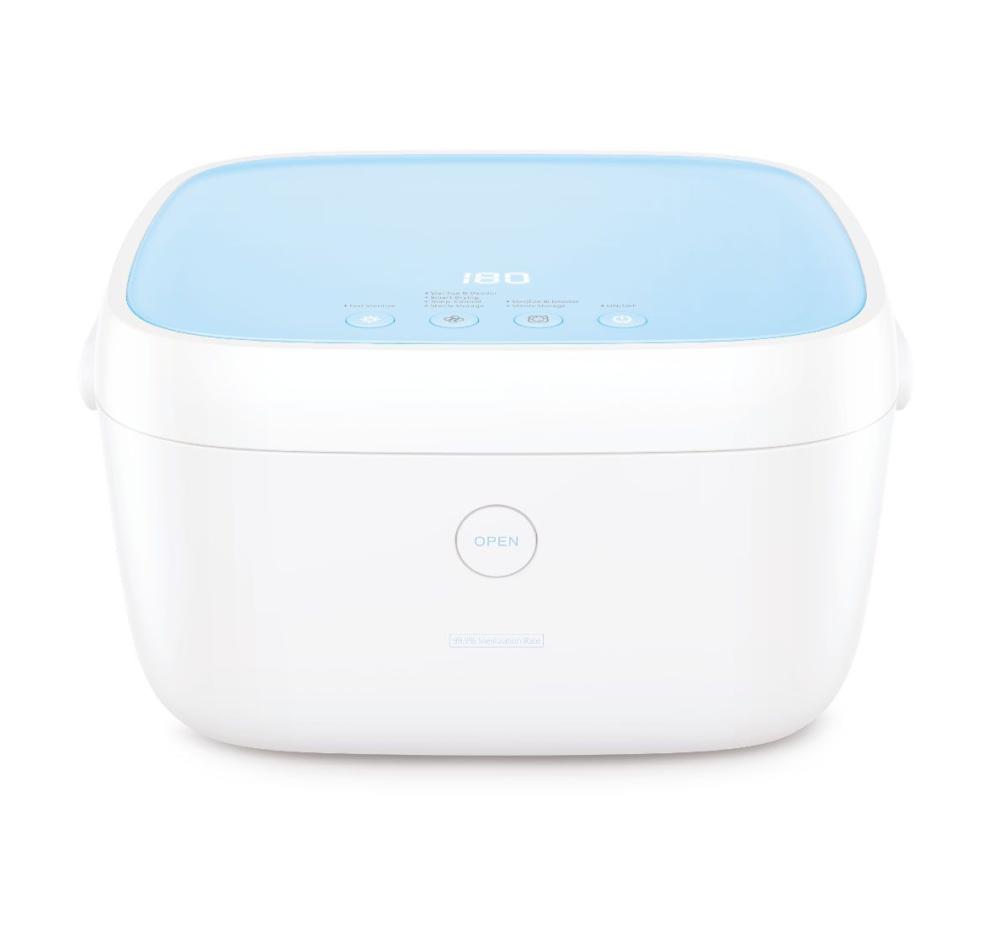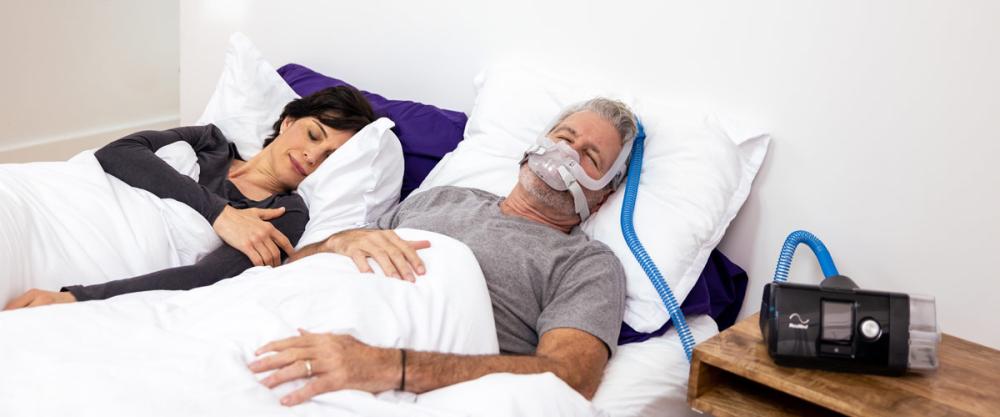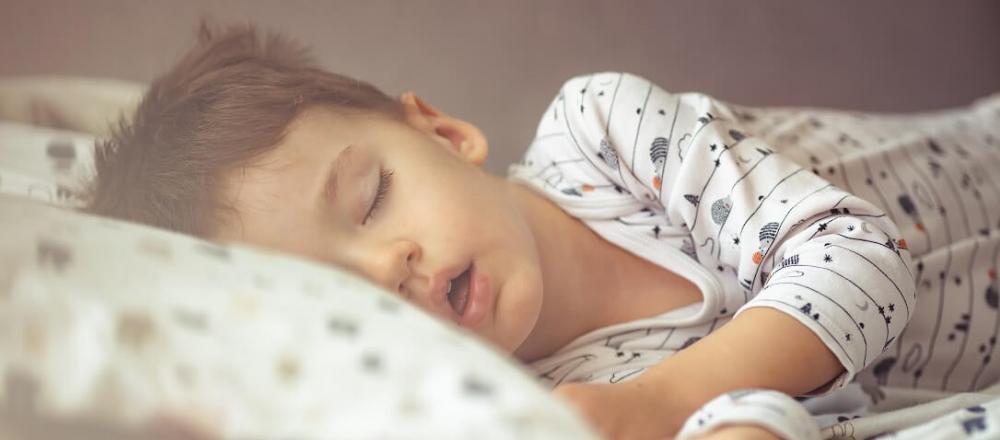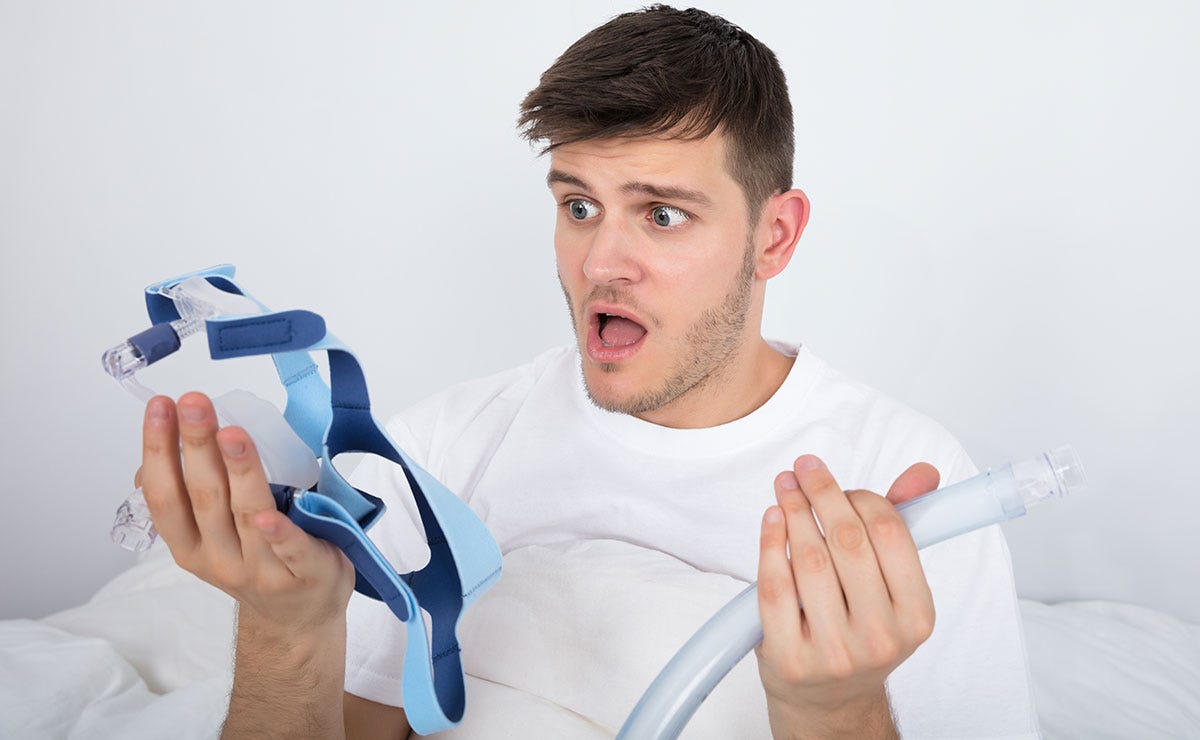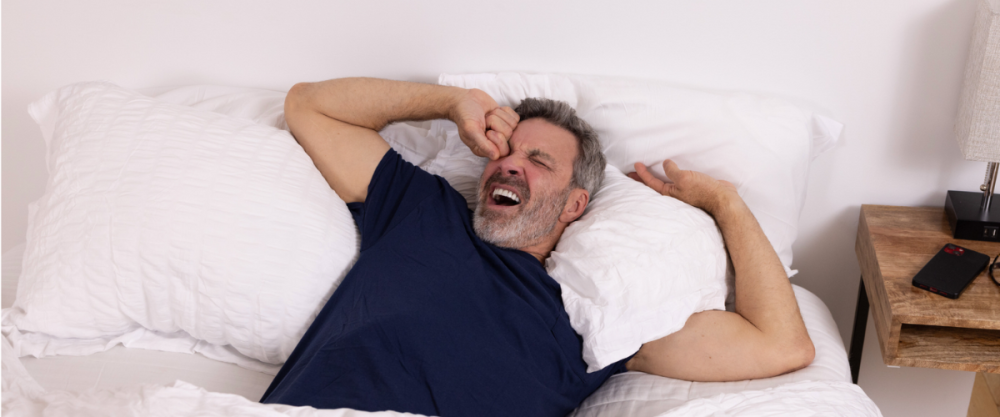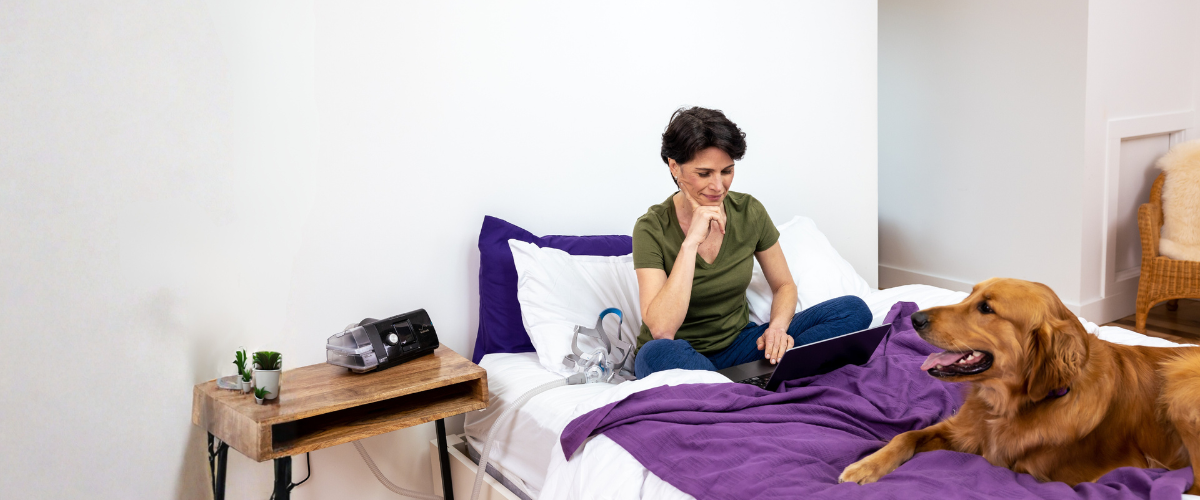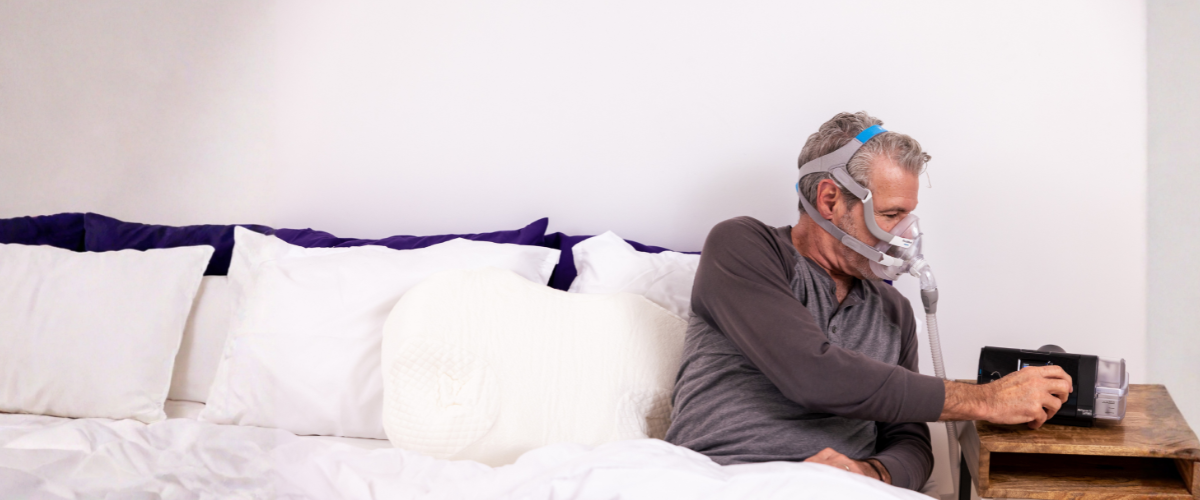During the Spring as new flowers bloom and pollen circulates, you could find yourself sneezing and coughing as seasonal allergies take hold. Allergies and sleep apnea can join forces to make it difficult to breathe comfortably and get adequate rest. Not only does the allergic reaction cause hay fever and runny nose, poor sleep can lead to morning headaches, sore throat, daytime fatigue, and more. It's easy to see why people may think that allergies cause sleep apnea since they share some of the same symptoms.
Table of Contents
Can Allergies Cause Sleep Apnea?
No, seasonal allergies do not directly cause obstructive sleep apnea (OSA), but they can make the condition worse for people who have it. People with OSA experience upper airway blockage that leads them to stop breathing multiple times per night. If you combine existing sleep apnea with nasal congestion and inflammation caused by seasonal allergies, the he result can be more frequent and longer apneas throughout the night.
If you suspect you have OSA, whether you experience allergies or not, speak with a healthcare provider. OSA is a diagnosis that can only be determined through a sleep study. Some common sleep apnea symptoms include:
- Loud snoring
- Waking up snorting or gasping for air
- Waking up with a dry mouth
- Frequent morning headaches
- Excessive daytime sleepiness and brain fog
- Insomnia
- Irritability
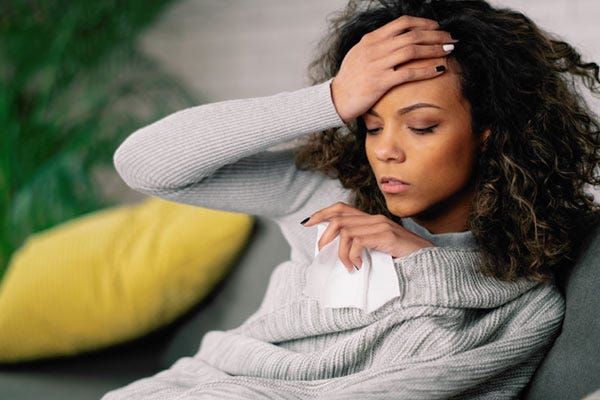

How Seasonal Allergies Disrupt Rest
As pollen, mold spores, dust mites, and other irritants invade your airways, the result is often allergic rhinitis (runny nose). This is because your mucous membranes produce extra secretions to flush the allergens out.
During the day when you’re upright, secretions typically drain from your sinus cavities into your into your throat. Then when you lay down, the congestion has nowhere to go, collecting in your nasal passages and leading to blockage of your upper airways.
So even if you don’t feel congested during the day, it can still affect you at night. It becomes difficult to pull in air through your nose, leading to mouth breathing. All of these symptoms can affect your quality of sleep, including:
- Itchy, watery eyes
- Sneezing
- Allergic rhinitis (runny nose)
- Sinus pressure
- Headaches
- Sore throat and dry mouth
- Facial tenderness
Tips for CPAP Users During Allergy Season
- Change your CPAP mask. If you typically use a nasal mask, it may be worth switching to a full face mask during allergy season if you find that you are too congested to breathe out of your nose.
- Use a CPAP Humidifier. It adds moisture to the air you inhale to help to break up congestion. Heated humidifiers can provide additional comfort and relieve dryness in your nasal passages. Be sure to change the distilled water daily.
- Clean your CPAP mask and supplies regularly. Your equipment can collect dust, mold, and bacteria over time. Clean or replace your filters and wipe off your CPAP with a damp cloth. Finally, use a CPAP sanitizer.
10 Ways to Combat Allergies
Your CPAP isn’t the only tool you have to fight back against allergic rhinitis. Use the following tips to keep allergens out of the bedroom.
- Wash your bed linens regularly and switch to hypoallergenic pillows. Sweep, vacuum, or dust every surface.
- Shower at night before laying down to remove all the pollen and irritants that you may have collected during the day. The steam from the shower can also help clear congestion before bed.
- Change your clothing outside of the bedroom to avoid bringing outdoor pollen and other irritants in.
- During spring allergy season, pollen counts are higher in the morning and at dusk, so avoid outdoor activities during those times and stay indoors as much as you can on windy days.
- Keep your bedroom windows closed to prevent pollen and other allergens from blowing inside.
- Keep your pets clean, especially after they come in from outdoors, or keep them out of the bedroom completely to reduce the pet dander circulating in the air.
- Allergy sufferers (and the rest of us) should drink plenty of fluids to stay hydrated. Doing so will boost your immune system to fight off irritants, plus hydration helps to thin and drain excess mucus.
- Run a humidifier in your bedroom to add moisture to dry air.
- Transfer plants outdoors or outside of your bedroom. They can harbor mold and other irritants that can make allergies worse.
- Consult with your doctor about the possibility of using antihistamines, decongestants or other allergy medications.
Depending on what you're allergic to, seasonal allergies could strike year-round. Use your CPAP for seasonal allergy relief and get better sleep, and better quality of life!
Resources:
McNicholas WT;Tarlo S;Cole P;Zamel N;Rutherford R;Griffin D;Phillipson EA; (n.d.). Obstructive apneas during sleep in patients with seasonal allergic rhinitis. The American review of respiratory disease. Retrieved April 7, 2023, from https://pubmed.ncbi.nlm.nih.gov/7125355/







